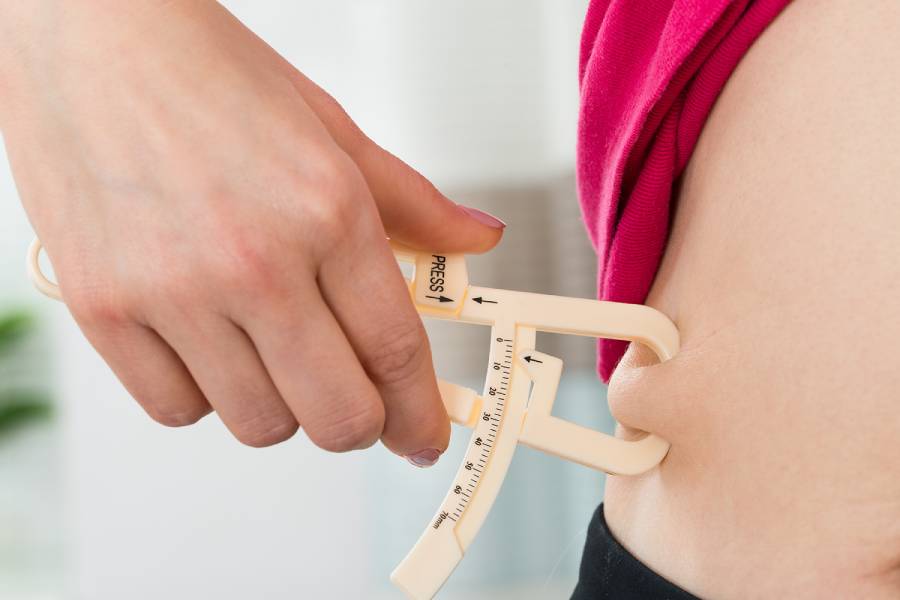Existing surgeries help with weight loss in different ways.
- Restrictive surgeries work by shrinking the size of the stomach and slowing down digestion. A normal stomach can hold about 3 pints of food. After surgery, the stomach may at first hold as little as an ounce, although later that could stretch to 2 or 3 ounces. The smaller the stomach, the less you can eat. The less you eat, the more weight you lose.
- Malabsorptive/restrictive surgeries change how you take in food. They give you a smaller stomach and also remove or bypass part of your digestive tract, which makes it harder for your body to absorb calories. Doctors rarely do purely malabsorptive surgeries — also called intestinal bypasses — anymore because of the side effects.
- Implanting an electrical device, the newest of the three techniques prompts weight loss by interrupting nerve signals between the stomach and the brain.

What is bariatric surgery and who needs it?
The word ’bariatric’ is derived from the Greek words “baros” meaning “weight” and “iatrikos” meaning “medicine”. Bariatric surgery is a surgical procedure of the digestive system to promote weight loss in people with severe obesity.
Weight-loss surgery is recommended for severely obese patients (Body Mass Index [BMI] above 40), when other weight-reduction strategies, such as diet management, exercise, etc, have failed. It is also suggested in severely obese patients who have medical conditions like arthritic joint diseases that restrict physical activity.
How does bariatric surgery work?
Bariatric surgery is a weight-loss tool that influences the anatomy and hormones of the stomach and digestive system. These changes reduce hunger, and emotional eating, and increase satiety, thus regularizing food intake and promoting fat burning. Over a period of time, the physiological changes related to energy balance and fat metabolism occur, which in turn helps to achieve a steady, desired body weight.
Thus, contrary to dietary weight loss which is usually short-living and reversible, surgical weight loss offers long-lasting weight loss, improved coexisting diseases, a better quality of life, improved self-esteem, and psychosocial status.
Most bariatric surgeries are done using minimally invasive techniques such as laparoscopy.
What are the different types of bariatric surgeries?
Bariatric surgeries aim at reducing food intake and increasing satiety. This is achieved by different procedures as mentioned below:
- Laparoscopic adjustable gastric banding (LAGB) – A small pouch is created with the help of a band to minimize food intake and increase satiety.
- Gastric balloon – A balloon is placed inside the stomach to promote early satisfaction.
- Gastric bypass–Roux-en-Y gastric bypass – A small pouch is placed that bypasses the stomach and duodenum. The bypass mechanism is believed to cause changes in the gut hormones, and hence promote satiety and suppress hunger.
- Gastric sleeve– Vertical Sleeve Gastrectomy – A portion of the stomach is removed to form a narrower gastric sleeve.
What are the risks and benefits of bariatric surgery?
In addition to weight reduction, bariatric surgery may improve or resolve conditions often related to obesity, such as:
- Gastroesophageal reflux disease
- Heart disease
- High blood pressure
- High cholesterol levels
- Infertility
- Severe or obstructive sleep apnea
- Stroke
- Type 2 diabetes
However, being a surgical procedure, bariatric surgery has few risks, which include, but may not be limited to:
- Bleeding
- Blockage or leaking in bowels
- Blood clots in legs and lungs
- Damage to the nearby structures
- Heart attack
- Infection at the site of surgery
- Pneumonia
- Urinary-tract infection
What to expect before, during and after bariatric surgery?
Before Surgery: The medical team will explain to you about the procedure and also give you instructions about do’s and don’ts before and after the surgery. You will also undergo some pre-operative investigations.
During Surgery: Surgery is carried out under general anesthesia by a specialized team of anesthetists, surgeons, and other medical staff. Depending on the type of surgery, surgeons perform the surgery in a couple of hours.
After Surgery: Depending upon your health status, you may need to stay in hospital for a few days. Recovery and rehabilitation vary from person to person. You will receive dietary and exercise guidance from the medical team, which is critical for the success of the surgery.
What is the expected post-surgery weight loss and its timeline?
Various factors influence weight loss after surgery. However, the average weight-loss* generally observed are:
- LAGB: 15-20%after six months
- Gastric Balloon:25-33% after six months
- Gastric Bypass: 70-75% in the first year
- Gastric Sleeve: 60-65% in two years
What diet should be taken after bariatric surgery?
A dietician will provide a complete diet plan that should be followed after bariatric surgery to ensure nutritional adequacy. After a few hours of surgery, only clear liquid is given. This is followed by pureed food for a few weeks and then small, tender, and easily chewable pieces. After eight weeks of surgery, firmer food can be started. A normal diet may be followed after about four months of surgery.
Throughout the diet, one should eat and drink slowly, keep meals small and chew thoroughly.
Why Dr. Narendra Chopde?
The success of bariatric surgery depends on the medical team as well as the availability of an advanced setup. Dr. Narendra Chopde has a specialized team of doctors, nurses, dietitians, and counselors, led by a highly experienced bariatric surgeon. Also, the hospital setup is advanced with well-equipped tools and techniques for carrying out surgery and management of post-surgery complications, if any.
